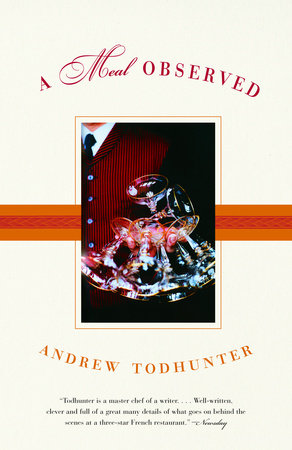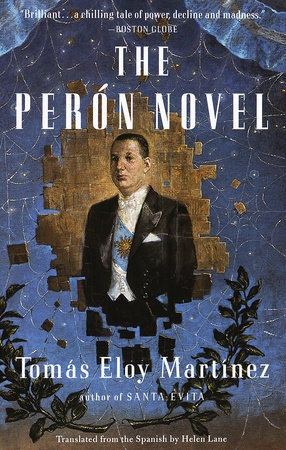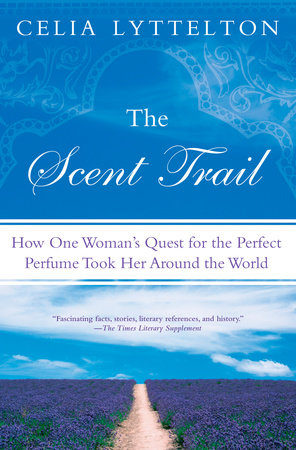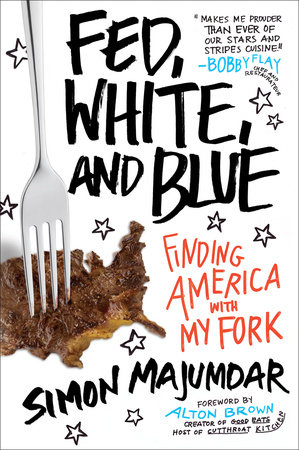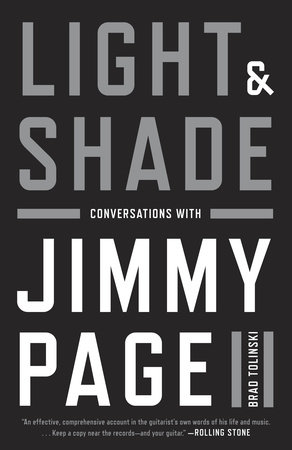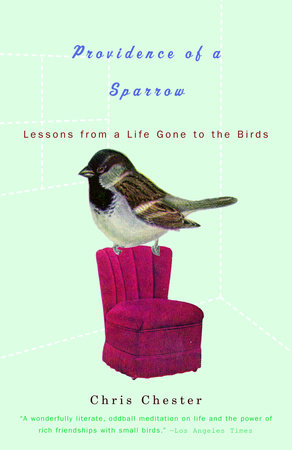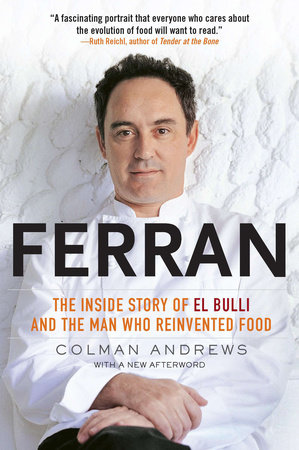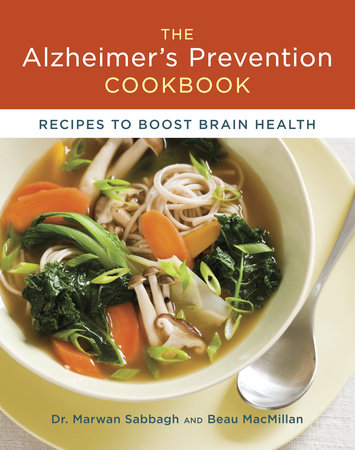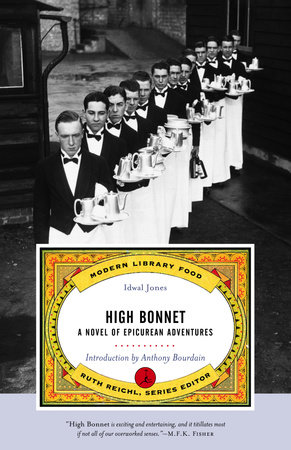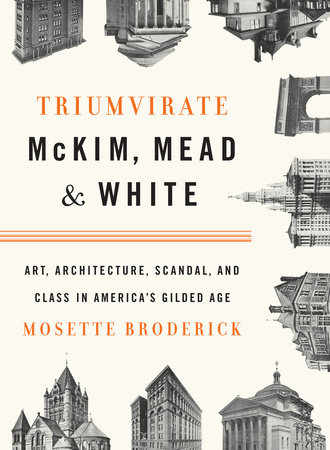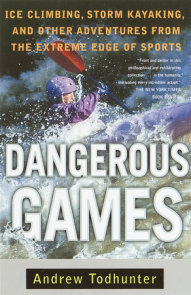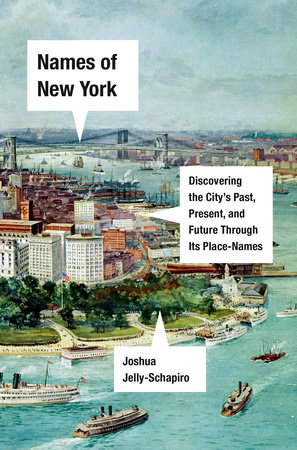Author Q&A
A Conversation with Andrew Todhunter
Q: Where did you originally come up with the idea of writing about a meal at Taillevent? Did you have a desire to apprentice at the restaurant before or did the idea for a book come while you were apprenticing?
A: I had long been interested in the perspective of professional chefs, and in the role food plays in our lives, and it seemed to go almost without saying that such a project should take me to France. I was born in Paris to American parents and have lived there off and on as an adult. I had no intention of writing about Taillevent, per se, and in fact had more anticipated finding a very, very good chef at a more modest restaurant that was a little place off the beaten track. So, I was surprised to end up at Taillevent, at a prominent three-star restaurant, but I was drawn there by the chefs, especially by pastry chef Gilles Bajolle, who could not have been a kinder or more interesting subject.
Q: Your previous books focused on extreme sports writing, and this is obviously a bit of a departure.
A: I fell into writing about the outdoors because that was how I spent much of my time in college and before. It was a natural fit, but I have always been interested in exploring and writing about other subjects—food, history, archaeology, travel, faith and so on. From early on I have greatly admired writers with range; someone like John McPhee, for example, who can apply his method to nearly anything and produce something fascinating, entertaining, informative. I mean, my God, the man even made a book about oranges—not one of my particular passions—a page turner.
Q: Did you see any parallels between extreme sports and the food world?
A: As for cooking as an extreme sport, yes, there have been some jokes to that effect. Leaping onto asparagus spears and the like. In fact, as a father, I found it very refreshing to do my research on flat ground, at what amounted to zero physical risk—minute cuts or burns to the forearms notwithstanding. I had become increasingly discouraged by the deaths of friends and subjects in the sporting world, and it was a relief to be free of that alone for a time, to be rid of the nagging sensation that my work, my research, was in some way irresponsible, that I was putting myself selfishly at risk.
Q: In the past few years, a new category of food writing has emerged that exposes the underbelly of professional kitchens in America. However, you write with nothing but reverence about the French culinary experience. Do you think that you went about this project with a different attitude and intention or that French culinary culture is ultimately more refined than it is in this country?
A: Well, I have nothing particularly against underbellies, American or French, but I saw little of that at Taillevent. It’s a very tightly run ship, for one thing, with a great deal of professional pride. I’m sure there are plenty of unsavory things done or said by the cooks of Taillevent—they’re as human as the next batch—but never on my watch. Of course there were hostilities, brief explosions of anger, acrimony, pettiness. But none of the sordid excesses we have read about elsewhere. Perhaps if I had been at another restaurant things would have been different. As it was, I merely wrote what I heard and observed.
Q: You began working on this book in 1999, before the current trend of food writing really emerged. What was your reaction when those books came out? Do you see this as a separate entity because you are writing about a restaurant in France?
A: I didn’t think much about it either way. People have been writing about food since Brillat-Savarin and before, and will continue to as long as we continue eating, which at this rate will be a good while.
Q: Do you feel being a semi-vegetarian hindered your dining experience at Taillevent?
A: I did not regret it during the dinner itself in the slightest; I was more than satisfied with the fish and the vegetable dishes, and am past the point—though it lasted for years—where I miss red meat. It did sadden me, however, to see my status as a non-meat eater create a gulf between me and a few of the chefs. For others it did not seem to matter. I find that I can live quite fully without red meat, and that I relish a good meal as much as the heartiest carnivore without passing judgment on others. After all, I ate and enjoyed meat for many years before I became a vegetarian.
Q: If you could experience your first meal at Taillevent again, what would you do differently?
A: Hmmm. I would drink a bit more wine, perhaps, and arrange to be trundled home. I would switch the order of the desserts we had. I would enter the restaurant with less apprehension, knowing how kind and hospitable, even warm, the staff would prove to be. I might substitute another dish for the mousseline, as the egg was a bit bland. But now I am slicing hairs. The meal, as it stands, is unlikely to be bettered in my lifetime. Equaled perhaps, but not bettered.
Q: Is there a restaurant in America you would like to apprentice in, or a chef you would particularly like to work with?
A: I don’t follow that world too closely—I was a non-foodie before I wrote the book and a non-foodie I remain. So I don’t know who the latest chefs are in New York or elsewhere. But if I had the chance I would love to go back to Chez Panisse. It was a kind of dream, the days in that kitchen. While I don’t have a specific chef in mind, I would very much like to work in San Francisco’s Chinatown with an old master. That would be something, a trip to the unknown.
Q: What’s next?
A: I’m writing a book about games, a personal history of a kind, looking first at the games most of us played in childhood, and where they came from—some from the Greeks, some from the Dark Ages, some from the 20th century. As the book progresses I move forward through time and through my own experience: board games, the purely social games we played as adolescents, the appearance and enormous impact of Dungeons & Dragons and other role playing games, the rise of arcade games, and finally the extraordinary and often very addictive computer games of the present day. As one dedicated gamer and the father of another, I am fascinated by the appeal of games. What do they do for us, emotionally and intellectually? Why do some people abhor games or find them tedious? Are there gaming genes, and if so, how closely related are they to the genes for risk, for gambling, for novelty? I have been playing games of all kinds for years, and it has been great fun to research this, to finally put my most persistent vice to better use.
